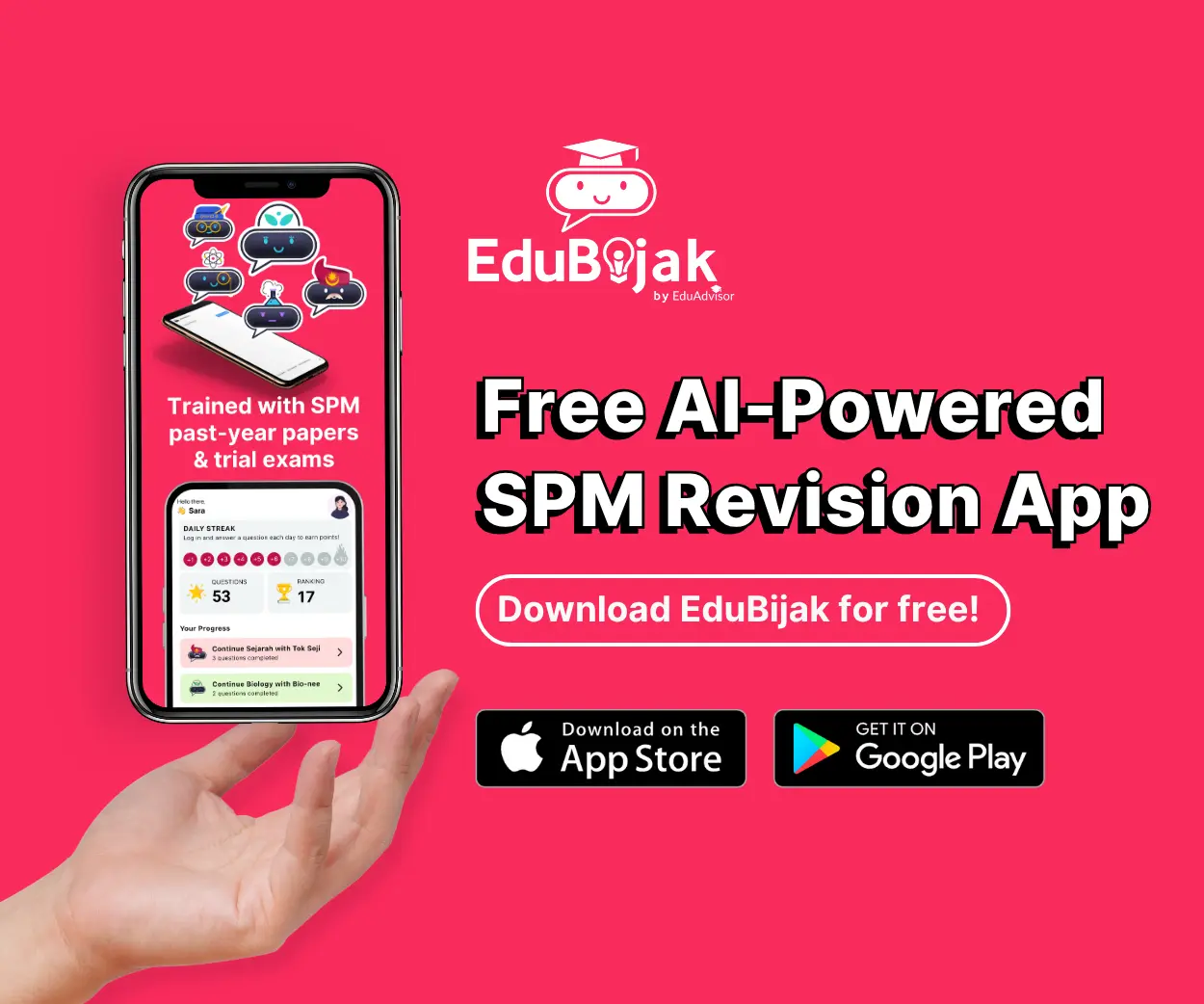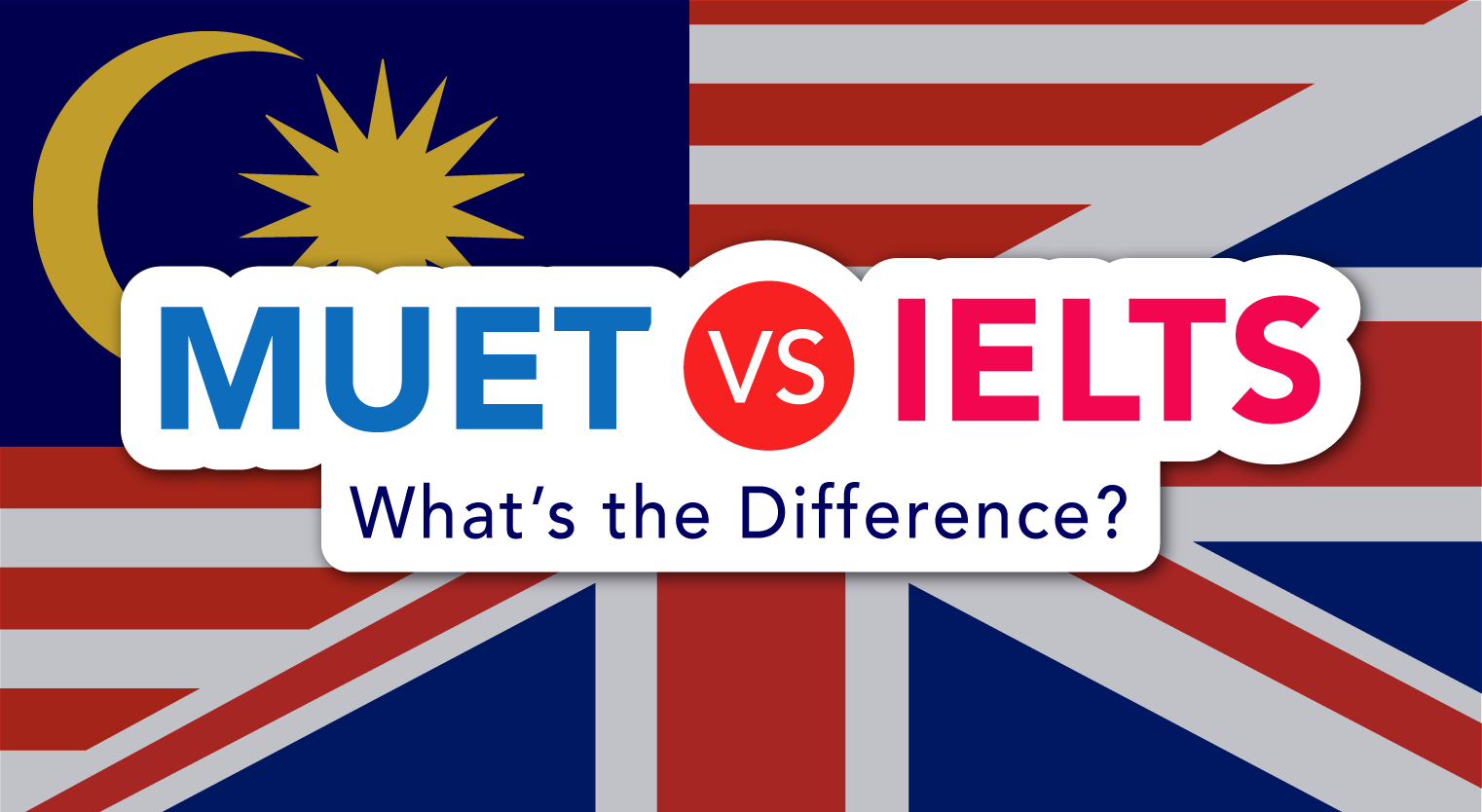The Complete Guide to Studying IELTS in Malaysia
What is IELTS and should you take it? Find out more about this English proficiency exam and whether it applies to you or not in this guide.
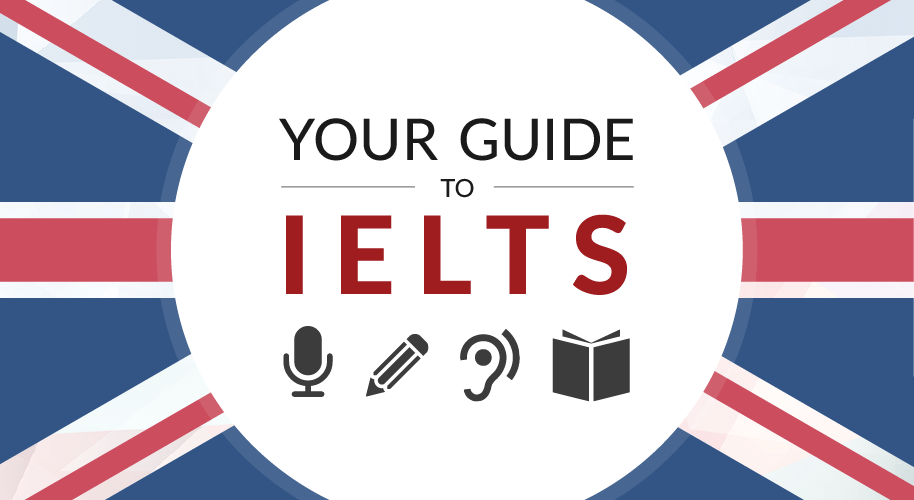
Looking to further your studies abroad in an English-speaking country, such as the UK, Australia or USA? Or perhaps you're planning to work or emigrate to a country where the primary language of communication is English?
If so, you may have come across a mandatory requirement to prove your proficiency in English.
There are a number of internationally-recognised English proficiency tests available, and one of the more popular ones is IELTS. This guide highlights some of the essential information that you need to understand about taking IELTS in Malaysia.
#1. What is IELTS?
a) What It Is
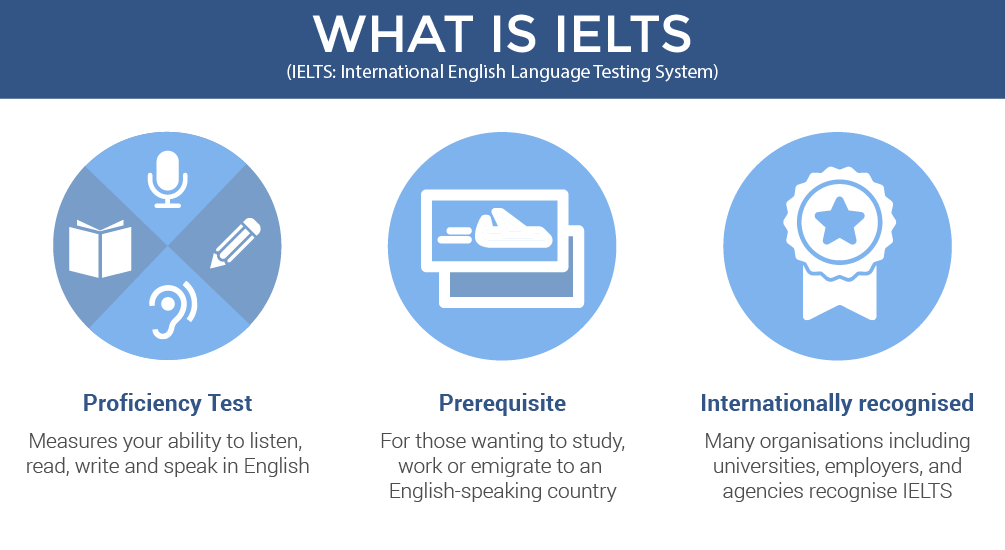 IELTS, or International English Language Testing System, is an English language proficiency test that you can take in Malaysia. It measures your ability to listen, read, write and speak in English, and the entire test duration is approximately 3 hours.
IELTS, or International English Language Testing System, is an English language proficiency test that you can take in Malaysia. It measures your ability to listen, read, write and speak in English, and the entire test duration is approximately 3 hours.
IELTS (or other English proficiency tests such as TOEFL) is usually a prerequisite for those who want to study, work or emigrate to a country where English is the primary language for communication.
As a measure of English proficiency, IELTS is recognised by over 12,000 organisations worldwide, including education institutions, employers, professional associations and government agencies. The majority of universities in the UK, Australia, Canada, New Zealand and USA accept IELTS as proof of English language proficiency.
With over 2 million tests being administered yearly, IELTS is arguably one of the most popular English language tests in the world.
#2. What Are the Types of IELTS Tests Available in Malaysia?
There are two main types of IELTS tests that you can sit for in Malaysia:
- IELTS Academic and General Training, or
- IELTS for UKVI (UK Visas and Immigration) Academic and General Training
Which type of IELTS test you take will depend on your visa requirements and / or the requirements of the university or organisation where you plan to study or work.
(i) IELTS Academic and General Training
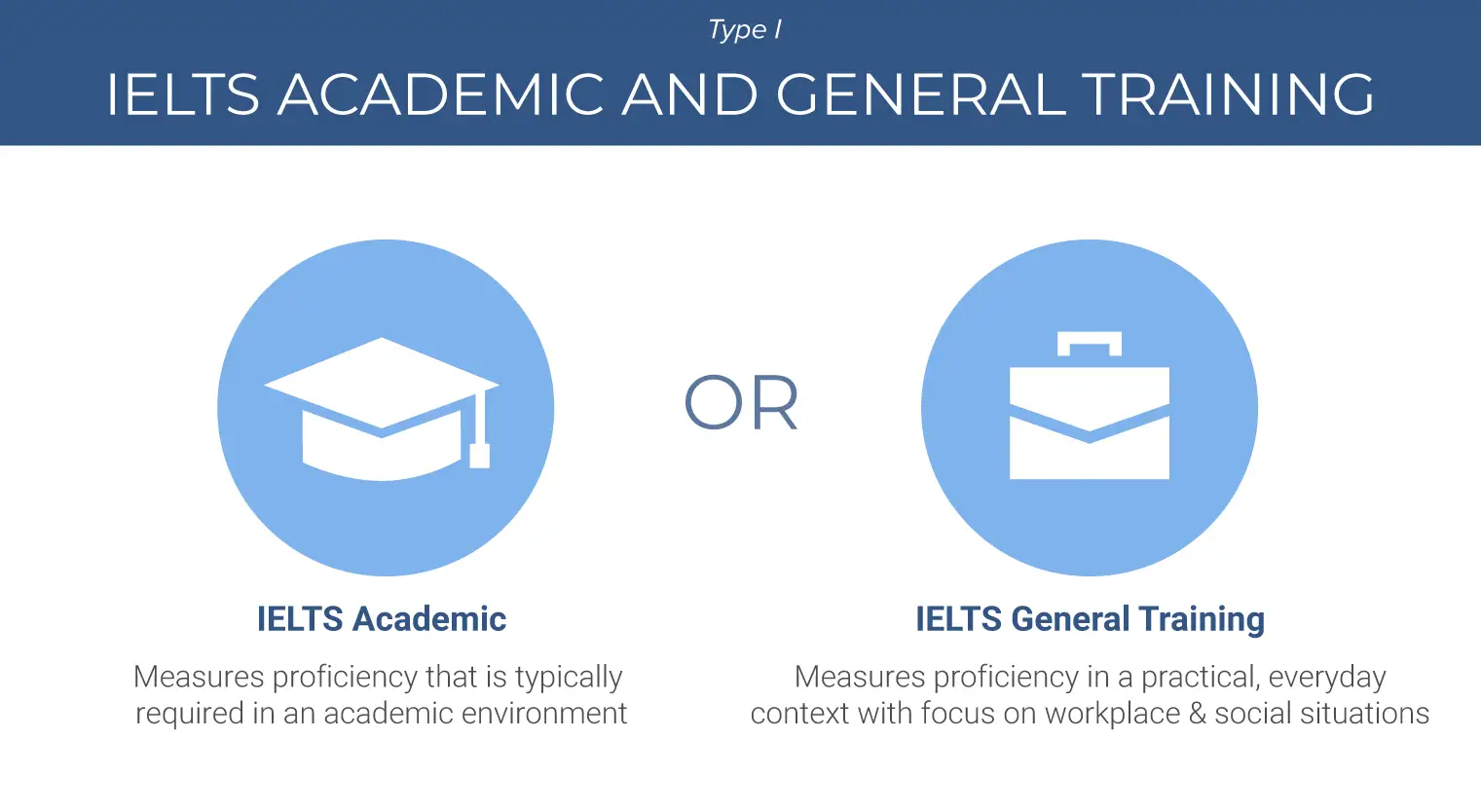 This is the standard IELTS test, with two modules to choose from:
This is the standard IELTS test, with two modules to choose from:
- IELTS Academic, or
- IELTS General Training
IELTS Academic measures proficiency that is typically required in an academic environment, while IELTS General Training measures proficiency in a practical, everyday context with focus on workplace and social situations. You will only need to take one module, and not both.
As a rough guideline, here are the differences between the two modules:
| Consider... | If You Want To... |
|---|---|
| IELTS Academic |
|
| IELTS General Training |
|
Both modules comprise of four parts — listening, reading, writing and speaking.
Remember that every organisation sets their own English requirements, so you must check to ensure that you are taking the correct IELTS module.
(ii) IELTS for UKVI (UK Visa and Immigration)
 If you are going to the UK for study, work or migration purposes, you may be required to take IELTS for UKVI.
If you are going to the UK for study, work or migration purposes, you may be required to take IELTS for UKVI.
For certain categories of UK visas, you must submit an English language qualification that is in the form of a Secure English Language Test (SELT) that is approved by the UK government. SELTs have better security measures and processes, including CCTV at test centres, frequent audits and mystery shopping to improve the integrity of test results.
IELTS for UKVI is one of the few Secure English Language Tests that is approved by the UK government.
Here are the IELTS tests that have been approved for UK Visa and Immigration purposes:
| Consider... | If You Want To... |
|---|---|
| IELTS for UKVI (Academic) |
|
| IELTS for UKVI (General Training) |
|
| IELTS Life Skills (B1) |
|
| IELTS Life Skills (A1) |
|
For IELTS for UKVI (both Academic and General Training modules), you will be evaluated in all four components — listening, reading, writing and speaking. For IELTS Life Skills, you will be evaluated on your speaking and listening skills only.
Again, it is absolutely crucial that you check with the institution where you plan to study or work on which IELTS version and module you should take.
If you are unsure which test you should take, please contact the organisation / institution that you will be applying to and seek clarifications on their requirements. You can also click here to check whether the organisation / institution that you are applying to accepts IELTS.

#3. How Is the IELTS Malaysia Test Structured?
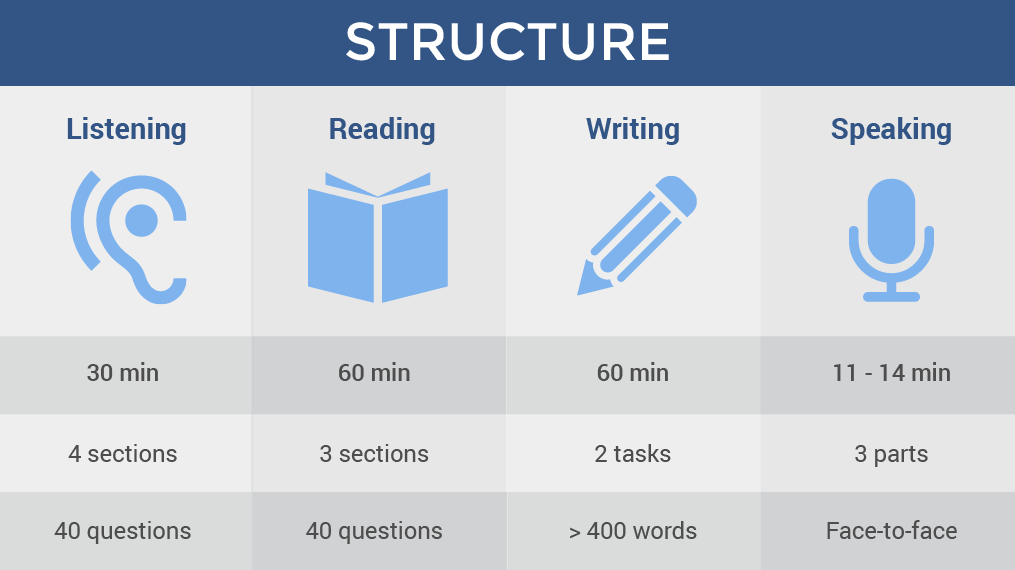
You will be tested in four language skills, namely, Listening, Reading, Writing and Speaking. For IELTS Life Skills under IELTS for UKVI, you will be tested on Speaking and Listening only.
There will be four separate tests for each language skill, and the complete duration for all four tests is approximately 3 hours.
Listening, Reading and Writing tests will be held one after another, without any breaks in between. As for the Speaking test, you can choose to have it on the same day or on a separate day, up to 7 days before or after the other tests, depending on availability.
Here are further details about each test.
| Skills Tested | Details |
|---|---|
| Listening |
|
| Reading |
|
| Writing |
|
| Speaking |
|
#4. How Will You Be Evaluated
You will be evaluated on all four linguistic skills, i.e. Listening, Reading, Writing and Speaking.
For IELTS Listening and Reading components, marks are given for each correct answer, whereas for IELTS Writing and Speaking components, examiners will use detailed performance descriptors as part of the assessment.
For each language skill, you will be given a score from 1 (the lowest) to 9 (the highest), as well as an overall score that is also on a scale from 1 to 9. You can score who (e.g: 5.0, 6.0, 7.0) or half (e.g: 5.5, 6.5, 7.5) bands in each part of the test. The average of your scores from the 4 tests will determine your overall band score.
There is no pass or fail in IELTS. Your results merely indicate your skill level and command of the English language. A higher score indicates that you are a very good user of the language, while a lower score indicates that you are a modest or limited user of English.
The IELTS scores are used to determine whether you have met the minimum required level of English proficiency of the university / organisation where you plan to study or work. For example, Oxford University requires an overall score of 7.0, with at least 7.0 in each of the four components.
Here is a summary of the IELTS Band Scores and what they mean.
| Band Scores | Skill Level | What It Means | Common European Framework of Reference (CEFR) |
|---|---|---|---|
|
9 |
Expert User | You have a fully operational command of the language. Your use of English is appropriate, accurate and fluent, and you show complete understanding. | C2 |
| 8.5 | |||
| 7.5 – 8 | Very Good User | You have a fully operational command of the language with only occasional unsystematic inaccuracies and inappropriate usage. You may misunderstand some things in unfamiliar situations. You handle complex detailed argumentation well. | C1 |
| 7 – 7.5 | Good User | You have an operational command of the language, though with occasional inaccuracies, inappropriate usage and misunderstandings in some situations. Generally, you handle complex language well and understand detailed reasoning. | |
| 6.5 | Competent User | You have an effective command of the language despite some inaccuracies, inappropriate usage and misunderstandings. You can use and understand fairly complex language, particularly in familiar situations. | B2 |
| 6 | |||
| 5.5 | |||
| 5 | Modest User | You have a partial command of the language, and can cope with overall meaning in most situations, although you are likely to make many mistakes. You should be able to handle basic communication in your own field. | B1 |
| 4.5 | |||
| 4 | |||
| 3 | Limited User | Your basic competence is limited to familiar situations. You frequently show problems in understanding and expression. You are not able to use complex language. | N/A |
| 2 | Extremely Limited User | You convey and understand only general meaning in very familiar situations. There are frequent breakdowns in communication. | |
| 1 | Intermittent User | You have great difficulty understanding spoken and written English | |
| 0 | Did Not Attempt the Test | You did not answer the questions |
#5. When Do You Need To Take IELTS
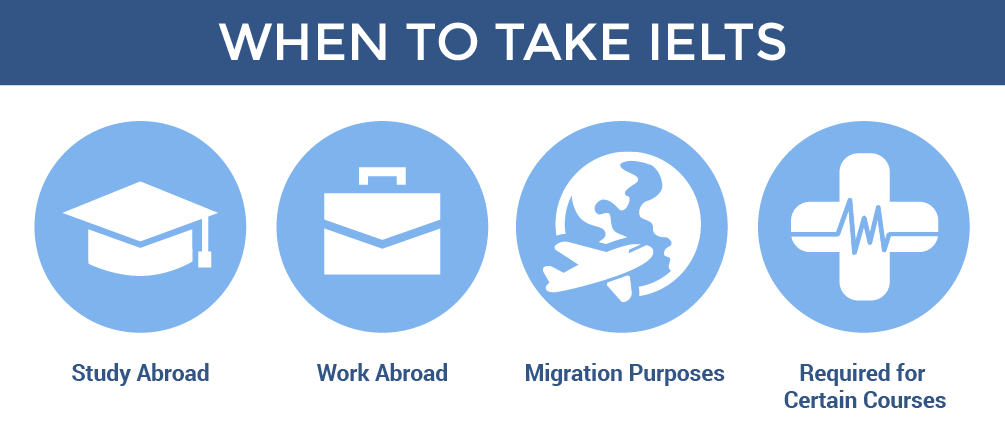 Here are some circumstances where you may be required to take the IELTS test:
Here are some circumstances where you may be required to take the IELTS test:
- You are planning to further your studies abroad (undergraduate or postgraduate) in an English-speaking country
- You are going to work abroad where the institution or the country primarily speaks English
- You plan to migrate to an English-speaking country
- You are aiming to pursue certain courses such as Nursing, Medicine or Dentistry (some universities in Malaysia may require you to prove your proficiency in English for the said courses).
It is extremely important for you to work out a feasible timeline for taking IELTS, especially for those of you who are bound by a specific deadlines (e.g. for work or education). This is so that you don't have to rush to take your IELTS tests, or risk getting your results late, which will affect your visa application process, among others.
PRO TIP
Not all universities require you to take English proficiency tests. Some universities accept other qualifications which you may already have, such as SPM English 1119 (GCE-O). It pays to check with the university before making a decision.
#6. How Can You Register for IELTS in Malaysia
You can register as an IELTS Malaysia candidate with British Council by:
- Registering online
- Registering through counter / post
As an Authorised British Council IELTS Registration Centre, you can also register to take IELTS with EduAdvisor. Click here to start your registration.
a) How Much Is the Fee?
The test fees for each IELTS tests are as in the table below:
| Tests | Fees |
|---|---|
| IELTS Academic and General Training | RM865 |
| IELTS for UKVI for both Academic and General Training | RM970 |
| IELTS Life Skills for both B1 and A1 | RM820 |
| IELTS One Skill Retake (OSR) Academic and General Training | RM545 |
| IELTS One Skill Retake (OSR) for UKVI Academic and General Training | RM610 |

#7. On Your IELTS Test Day
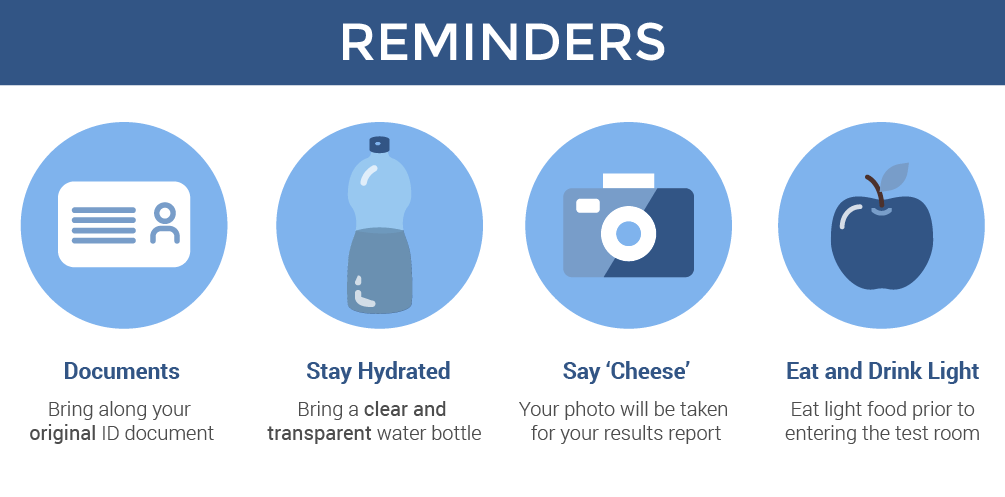 There is no need to bring your stationery as they will all be provided. You are only allowed to bring along your original ID document and a clear and transparent water bottle. You can leave all your other belongings with a personnel in charge on that day for safekeeping.
There is no need to bring your stationery as they will all be provided. You are only allowed to bring along your original ID document and a clear and transparent water bottle. You can leave all your other belongings with a personnel in charge on that day for safekeeping.
Also, you will be required to have your photograph taken on that day to serve as another form of security measure and it will appear on your Test Report Form (results report).
The Listening, Reading and Writing tests will be held consecutively, without any breaks in between. Therefore, remember to take some light food and empty your bladder prior to entering the test room. As for your Speaking test, you can choose to have it on the same day or on a separate day, up to 7 days before or after the other tests, depending on availability.
#8. IELTS Results
a) Getting Your IELTS Results
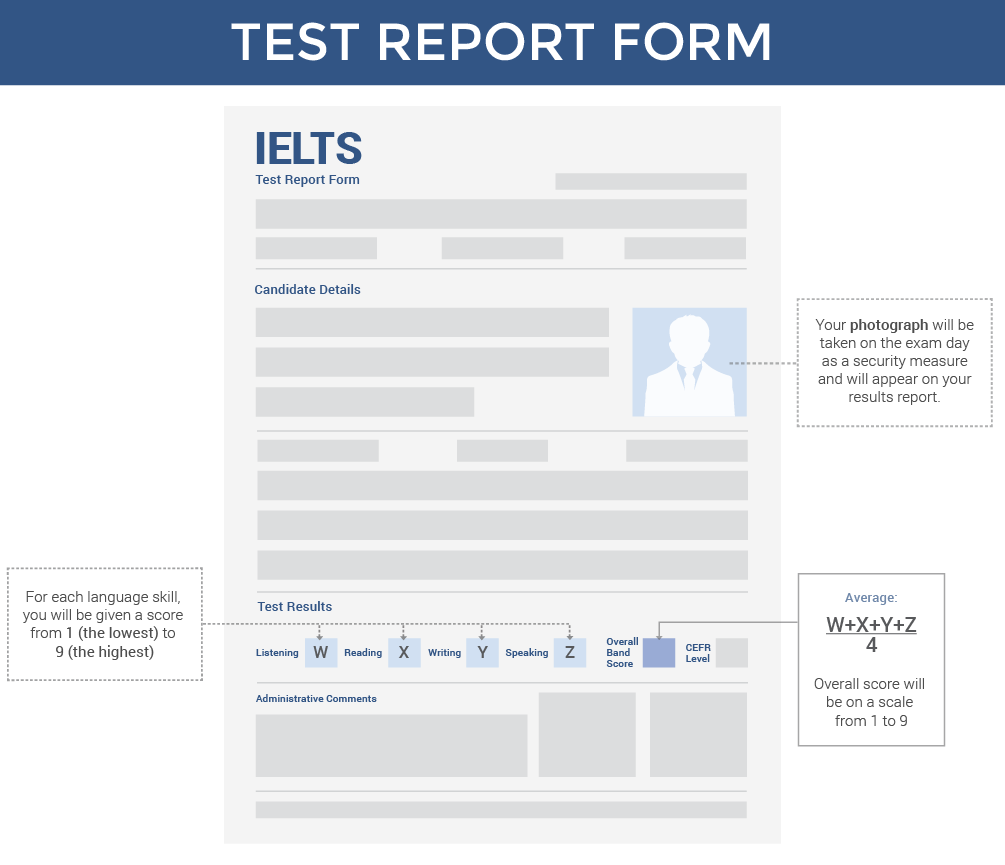
Your results will be available 1 – 5 calendar days (for IELTS on Computer) or up to 7 days (for IELTS for UKVI Life Skills) after you completed all the tests. Your results will be in a Test Report Form, which showcases the scores for each of your skill tests, as well as your overall band score.
When you can get the physical copy of your Test Report Form (TRF) depends on the the type of test you take.
| Test type | Physical results release time |
|---|---|
| IELTS on Computer | Next working day after online results are released at 1pm MY time. |
| IELTS for UKVI on Computer | 3 – 5 days after the test at 1pm MY time |
| IELTS Life Skills | 5th day after the test at 1pm MY time |
You can also request to have your Test Report Form to be sent to institutions / organisations (up to five of them) that you are applying to – for free. You can fill in the details of the institutions / organisations in the form when you register as an IELTS candidate.
Requests for more than five institutions, or requests to send your Test Report Form to any organisations after your test day, will be charged RM35 (with 0% GST) per copy and a courier fee per address. Do note that test centres are NOT allowed to disclose your results over the phone or by email.
b) What Can You Do If You Are Unhappy With Your IELTS Results
If you have not achieved the band score that you were aiming for, it's not the end of the world. Here are a couple of things you can do.
(i) Retake your IELTS examination
You can register to retake as soon as you feel you are ready.
If you wish to only repeat one skills, you can opt for IELTS One Skill Retake (OSR), which is a new feature that lets you retake any of the four IELTS skills – Listening, Reading, Writing, or Speaking. This way, you don't have to sit for the whole test again. IELTS OSR is cheaper than IELTS since you will only be sitting for one component.
Do note that you will need to make a significant effort to improve your proficiency in English. Otherwise, your IELTS score will unlikely improve.
(ii) Remark your test(s)
You can apply for a review of your test(s), otherwise also known as Enquiries on Results at the centre where you took your tests. The review will normally take around six to eight weeks. You need to submit your application for review within six weeks after your test date. There will also be a fee charged, which will only be refunded if your score on any skill test increases.
#9. Why Take IELTS with British Council?
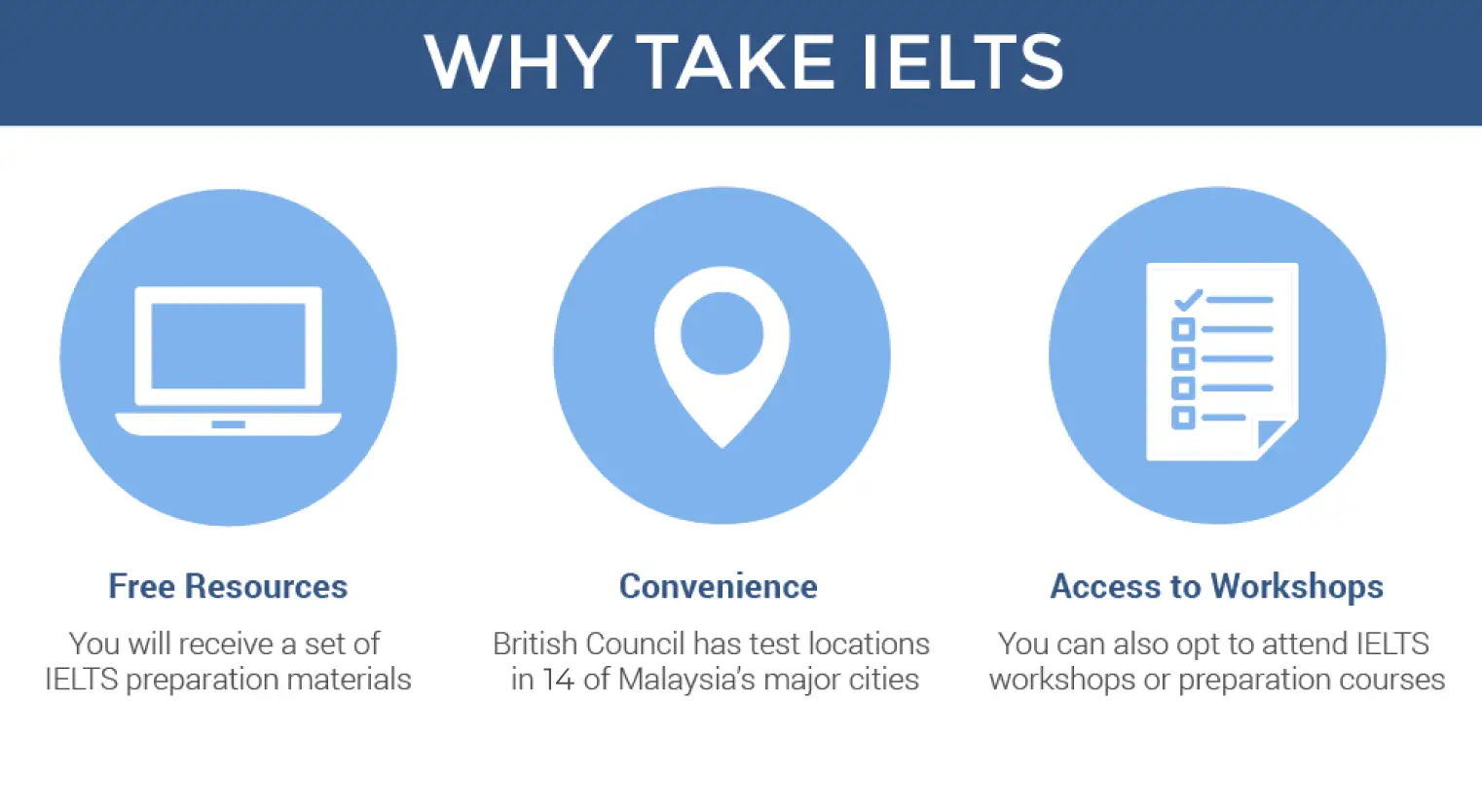 As the UK’s international organisation for educational opportunity and cultural relations, there are many reasons why you should take IELTS with British Council Malaysia.
As the UK’s international organisation for educational opportunity and cultural relations, there are many reasons why you should take IELTS with British Council Malaysia.
(a) Free resources
You will receive a set of IELTS preparation materials, which includes up to 30 hours of free online training. You will have access to over 100 interactive exercises, extra tutorial videos plus lots of mock tests to boost your confidence level!
(b) Convenient dates and locations
British Council has test locations in 14 of Malaysia’s major cities, from Kuala Lumpur and Penang to Kota Kinabalu and Kuching. More test dates and test locations means more convenience for you! Check out the full list of test centres here.
(c) Additional British Council IELTS workshops and preparatory courses
You can also attend IELTS workshops or preparation courses organised by British Council. This can help you ensure you are absolutely well-prepared to take on the tests and score the bands that you are aiming for.

